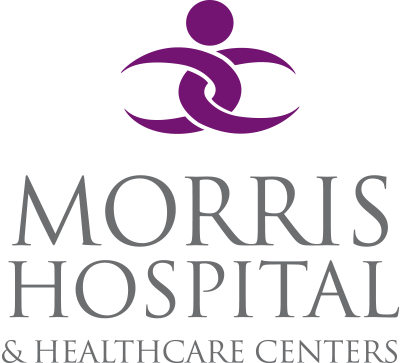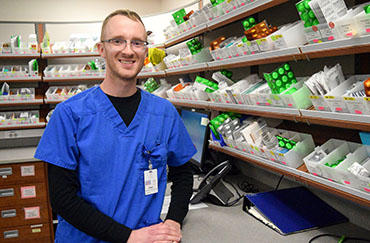May 8, 2017, Morris, Illinois — A stroke occurs when the brain’s blood supply is cut off or severely reduced. After several minutes without blood and oxygen, brain cells begin to die.
May is National Stroke Awareness Month and according to the American Stroke Association, most strokes are preventable. A large percentage of the ones that happen are treatable with the right care, right away.
“There are two main types of stroke,” says Dr. Isaac Mezo, a neurologist with Morris Hospital Neurology Specialists. “The most common is an Ischemic stroke, where the blood supply to the brain is cut off, causing brain tissue to die. Less common, but no less scary, is a Hemorrhagic stroke, usually due to uncontrolled high blood pressure or an aneurysm, causing bleeding in the brain.”
The symptoms for both types are the same: slurred speech; numbness or tingling in the face, arm, leg, or on one side of the entire body; weakness; or vision loss in one eye. Symptoms will vary from person to person, and can affect just one side, or both sides of the body.
“Don’t try to diagnose yourself, just call 911,” Dr. Mezo explains. “Let us figure it out in the emergency room. Every second your body isn’t getting therapy, brain cells are dying.”
Experts in the emergency room can quickly determine if someone has had a stroke. “If a patient arrives quickly, clot-busting medications can typically restore blood flow to the brain. Don’t take an aspirin at home if you suspect a stroke, in case it’s the bleeding type,” he adds.
An MRI of the brain, imaging of blood vessels to find blockages or plaque, a heart monitor, and an echocardiogram (ultrasound of the heart) are all helpful tools in diagnosing a stroke.
However, prevention is key, especially to avoid a second stroke, Dr. Mezo says. “High blood pressure, cholesterol, and blood sugar must be controlled, and smokers must quit,” says Dr. Mezo, adding, “If symptoms come and go, it could be a TIA, or a warning sign of a stroke to come. This can signal a potential bigger stroke within the next few days. Get checked immediately.”
Morris Hospital offers a free, quick and easy to complete online stroke risk assessment that can be taken from any mobile device with internet access. Instant results are provided indicating whether a person is at low, moderate or high risk for stroke, along with a comprehensive, 6-page report including important information about reducing stroke risk factors. To take the online stroke risk assessment, go to www.morrishospital.org/getcheckednow.




